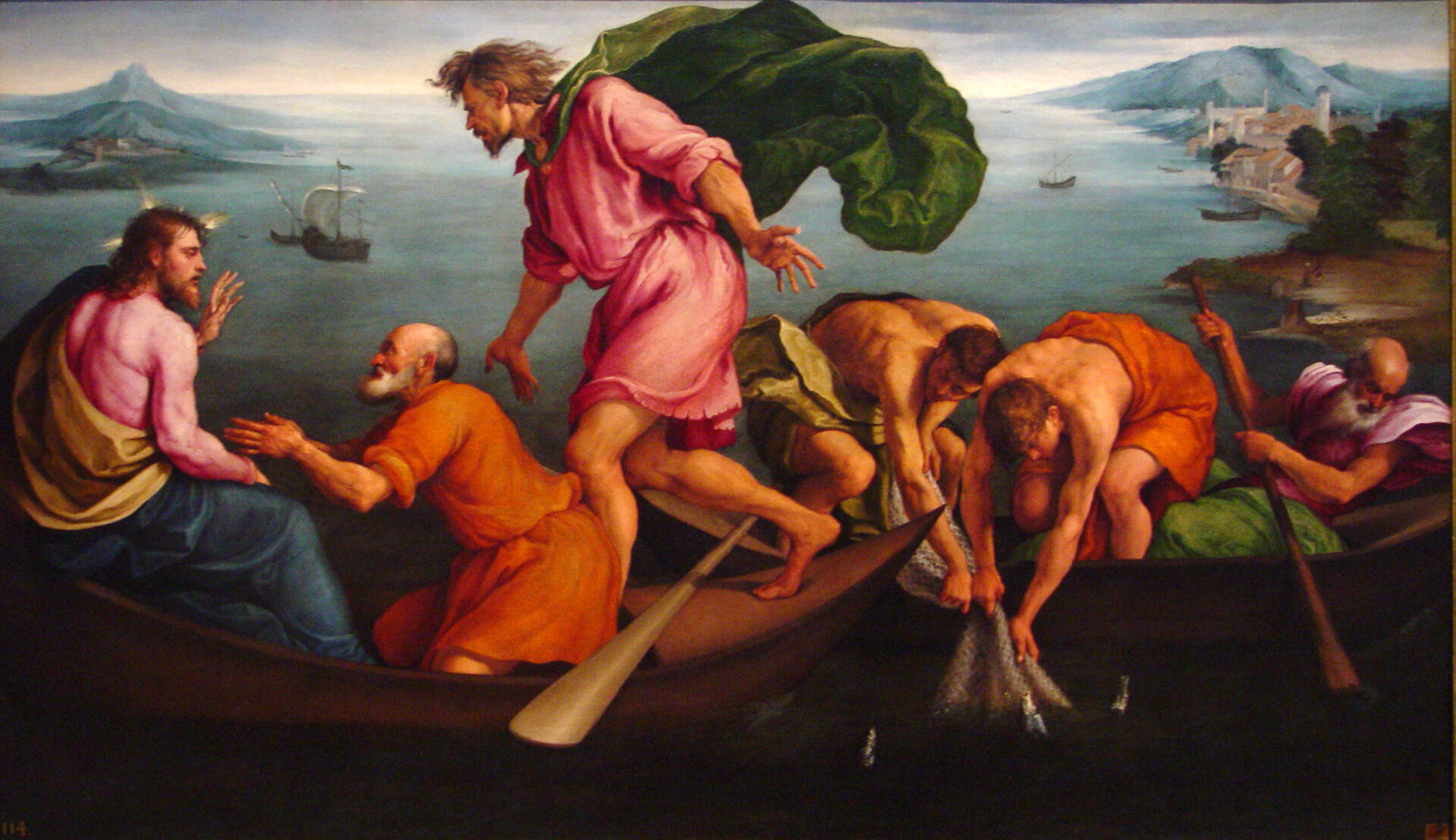
[Answering Atheism Tuesday]
Today we finish our consideration of John 21:1-19, and the importance of having a mission and plan of life. This is exemplified by the disciples and the fruitfulness of patiently waiting on Jesus and then following His commands.
If you search “plan of life” in YouTube (we don’t recommend spending much time there…) you will find limitless hours on designing your life, achieving happiness in life, and multiple appearances from Tony Robbins, Jordan Peterson and the man of the hour, Elon Musk. Scroll down far enough and God shows up.
The most-viewed offerings, those with millions of views, almost exclusively focus on satisfaction with your job.
Here’s an interesting thing – when looking at what they have to say about being satisfied with your job or career – there seems to be a general agreement that it’s not about the work, it’s about people (even the vaunted Harvard Business Review agrees). The advice goes something like this: most people, maybe as high as 80-90% are dissatisfied with their jobs. But the dissatisfaction is not nearly as much about the work itself as it is about people. Finding a job setting that makes you happy, and serving people who appreciate your work, is far more important than what you actually do.
While the heavy emphasis on work as the primary source of happiness is off the mark, they’re onto something with the “people principle.”
In 30 Days to Christian Meditation, we present the classical “5 R’s” of meditation (there’s usually anywhere from three to five R’s – we go with the full five, so you’ve seen them all!).
But there is the “sixth R” – the all-important R. The “one R to rule them all” to paraphrase Tolkien (yes, that reference is from Steve), and that is Relationship.
Relationship is what mission (our Vocation) and a Plan of Life (based on our Vocation) are all about, because that is what Jesus is all about. And so we prioritize our time, talent and treasure through a hierarchy of relationships: relationship with God, relationship with family, relationship with friends, and so forth.
Just like the disciples, we need to turn to the Lord to guide us in our Vocation and Plan of Life – both in the broad strokes and then in our day-to-day lives, so that Jesus can transform the most ordinary tasks into opportunities to encounter Him and share Him with others.
Postscript: John 21:1-19
At that time, Jesus revealed himself again to his disciples at the Sea of Tiberias. He revealed himself in this way.
Together were Simon Peter, Thomas called Didymus, Nathanael from Cana in Galilee, Zebedee’s sons, and two others of his disciples. Simon Peter said to them, “I am going fishing.”
They said to him, “We also will come with you.” So they went out and got into the boat, but that night they caught nothing.
When it was already dawn, Jesus was standing on the shore; but the disciples did not realize that it was Jesus.
Jesus said to them, “Children, have you caught anything to eat?” They answered him, “No.”
So he said to them, “Cast the net over the right side of the boat and you will find something.”
So they cast it, and were not able to pull it in because of the number of fish. So the disciple whom Jesus loved said to Peter, “It is the Lord.” When Simon Peter heard that it was the Lord, he tucked in his garment, for he was lightly clad, and jumped into the sea.
The other disciples came in the boat, for they were not far from shore, only about a hundred yards, dragging the net with the fish. When they climbed out on shore, they saw a charcoal fire with fish on it and bread.
Jesus said to them, “Bring some of the fish you just caught.” So Simon Peter went over and dragged the net ashore full of one hundred fifty-three large fish. Even though there were so many, the net was not torn.
Jesus said to them, “Come, have breakfast.” And none of the disciples dared to ask him, “Who are you?” because they realized it was the Lord. Jesus came over and took the bread and gave it to them, and in like manner the fish. This was now the third time Jesus was revealed to his disciples after being raised from the dead.
When they had finished breakfast, Jesus said to Simon Peter, “Simon, son of John, do you love me more than these?” Simon Peter answered him, “Yes, Lord, you know that I love you.” Jesus said to him, “Feed my lambs.”
He then said to Simon Peter a second time, “Simon, son of John, do you love me?” Simon Peter answered him, “Yes, Lord, you know that I love you.” Jesus said to him, “Tend my sheep.”
Jesus said to him the third time, “Simon, son of John, do you love me?” Peter was distressed that Jesus had said to him a third time, “Do you love me?” and he said to him, “Lord, you know everything; you know that I love you.” Jesus said to him, “Feed my sheep.
Amen, amen, I say to you, when you were younger, you used to dress yourself and go where you wanted; but when you grow old, you will stretch out your hands, and someone else will dress you and lead you where you do not want to go.” He said this signifying by what kind of death he would glorify God. And when he had said this, he said to him, “Follow me.”
